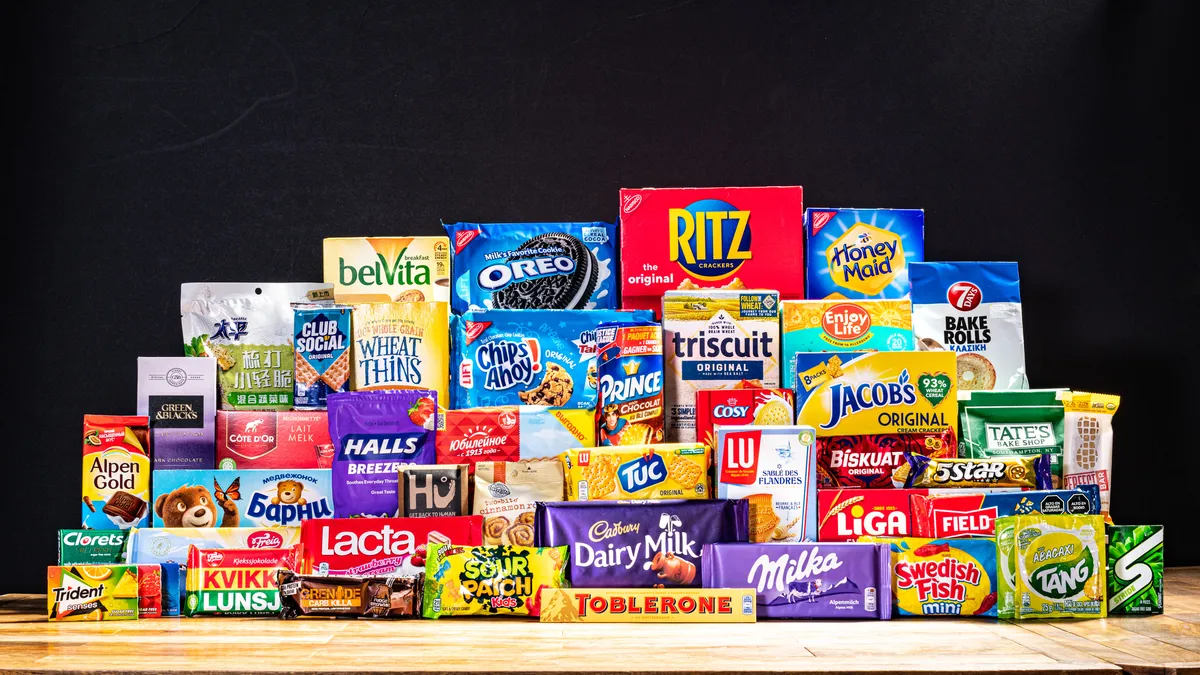Mondelez Adopts AI to Cut Marketing Costs by 50%
Mondelez International adopts generative AI to cut marketing costs by 30-50%, enhancing efficiency and innovation amid digital transformation efforts.

Introduction to Mondelez's AI Initiative
Mondelez International, the renowned manufacturer of beloved snack brands such as Oreo and Cadbury, has embarked on a groundbreaking journey to revolutionize its marketing strategy by leveraging generative AI. The company has developed a cutting-edge AI tool in collaboration with Publicis Groupe and Accenture, aiming to significantly reduce marketing content production costs by an impressive 30% to 50%. This initiative is part of Mondelez's broader digital transformation efforts, which include substantial investments in cloud infrastructure and enterprise resource planning (ERP) systems.
Mondelez's decision to adopt AI in marketing is driven by the need to adapt to changing consumer behaviors and economic challenges. The company faces pressures such as tariffs and shrinking shopper budgets, which necessitate innovative solutions to maintain competitiveness. By harnessing AI, Mondelez seeks not only to cut costs but also to enhance operational efficiency and accelerate product innovation.
Background and Key Features of the AI Tool
The development of the AI tool began last year, with the goal of creating short TV ads that could be ready for broadcast as early as the next holiday season and potentially for the 2027 Super Bowl. Mondelez has invested over $40 million in this technology, which is currently being used for social media content creation for brands like Chips Ahoy in the U.S. and Milka in Germany. The tool also supports product pages for Oreo on platforms such as Amazon and Walmart, with plans to expand to other brands like Lacta and Cadbury in different regions.
Notably, Mondelez avoids using human likenesses in its AI-generated content, a decision that distinguishes it from some competitors. This approach is part of the company's commitment to ensuring that its marketing content adheres to strict guidelines against promoting unhealthy habits, offensive stereotypes, or manipulative messaging. Human oversight is integral to this process, ensuring that all AI-generated content meets these standards.
Digital Transformation and ERP Initiative
Mondelez is undergoing a comprehensive digital transformation, which includes a multi-year, $1.2 billion ERP and supply chain modernization project in partnership with SAP, Accenture, and o9. This initiative aims to enhance operational efficiency and supply chain operations across multiple regions by the end of 2028. Additionally, Mondelez has entered a strategic partnership with Amazon Web Services (AWS) to advance digital innovation and cloud capabilities.
Industry Impact and Context
The adoption of AI in marketing by Mondelez reflects a broader trend in the consumer goods industry. Companies like Kraft Heinz and Coca-Cola are also exploring AI-driven marketing strategies. For instance, Coca-Cola ran AI-created holiday ads in 2024, although the use of computer-generated people in those ads was met with criticism from some consumers for lacking real emotion.
Mondelez's cautious approach to AI-generated content, avoiding human likenesses, highlights the ethical considerations that companies must navigate when leveraging AI in marketing. The rise of AI-generated video content has sparked significant discussions in the digital media industry, bringing urgent ethical concerns to the forefront.
Implications for Marketing and Consumer Engagement
The use of AI in marketing content creation offers several benefits beyond cost savings. It enables companies to produce content more quickly, allowing for faster adaptation to changing market conditions and consumer preferences. Moreover, AI can help in personalizing marketing messages, enhancing user engagement through advanced search engine optimization (SEO) techniques, and automating repetitive tasks.
However, the integration of AI in marketing also raises questions about creativity and authenticity. While AI can generate content efficiently, it may lack the nuance and emotional resonance that human creators can provide. As Mondelez and other companies continue to explore AI-driven marketing strategies, they must balance efficiency with the need for authentic and engaging content that resonates with consumers.
Conclusion
Mondelez's decision to leverage generative AI in its marketing efforts marks a significant step forward in the company's digital transformation journey. By harnessing AI to reduce costs and enhance operational efficiency, Mondelez is poised to maintain its competitive edge in a rapidly evolving consumer goods landscape. As the company continues to innovate and expand its use of AI, it will be crucial to address both the opportunities and challenges presented by this technology, ensuring that AI-driven marketing strategies align with consumer needs and ethical standards.



